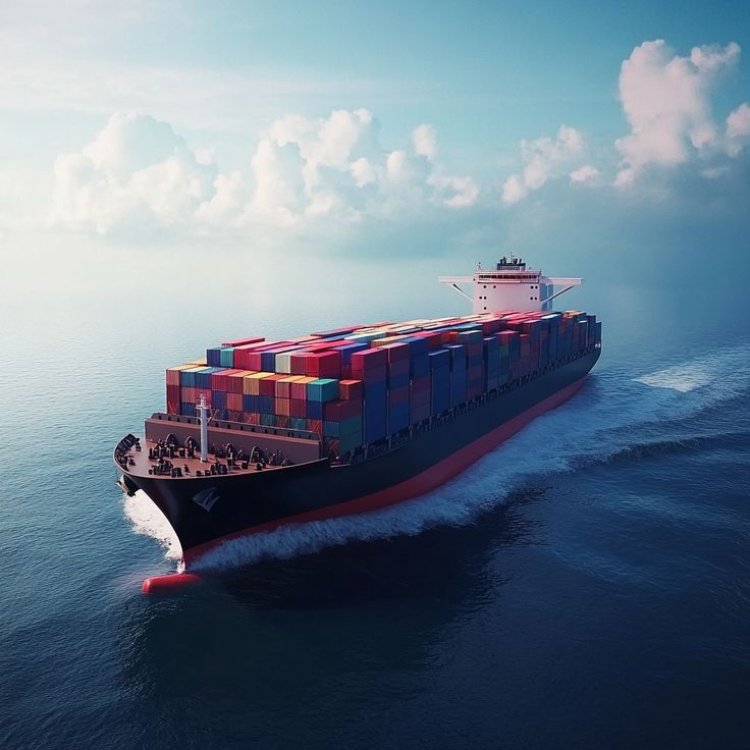How Fleet Logistics Support Can Revolutionize Operations
Fleet Logistics Support (FLS) has become an indispensable force multiplier in modern military and commercial operations.
Share this Post to earn Money ( Upto ₹100 per 1000 Views )

In today’s fast-paced and highly dynamic operational environments—be it naval, air, or ground-based—logistics is more than just a backend process. It is the lifeline that sustains operations, ensures preparedness, and enables mission success. One of the key enablers in this domain is Fleet Logistics Support (FLS). Whether in military defense or commercial shipping, Fleet Logistics Support provides a crucial bridge between resources and real-time needs, minimizing downtime and maximizing readiness.
Understanding Fleet Logistics Support
Fleet Logistics Support refers to the coordination and management of supply chains, transportation, maintenance, and logistical services tailored specifically for fleet operations. This can include ships, aircraft, ground vehicles, and even unmanned systems. The goal is simple but powerful: keep the fleet mission-ready at all times with minimal delays and maximum resource optimization.
FLS encompasses everything from fuel and ammunition to food, spare parts, and technical support. A single breakdown in this system can jeopardize entire missions. Hence, understanding how to improve operations through efficient Fleet Logistics Support is more important than ever.
1. Enhanced Operational Readiness
One of the most critical ways FLS improves operations is by ensuring that assets are always mission-ready. Through predictive maintenance, advanced inventory systems, and real-time communication, FLS teams can anticipate the needs of each fleet unit and deliver the necessary support even before it's requested.
For instance, a naval vessel can receive parts, food, or fuel mid-mission via underway replenishment. Similarly, aircraft can be maintained and refueled at remote airstrips because the FLS framework ensures advance provisioning. These capabilities drastically reduce downtime and extend the reach and longevity of operations.
2. Streamlined Supply Chain Efficiency
Fleet Logistics Support improves the operational efficiency of the entire supply chain. By integrating technologies like AI, IoT, and blockchain, modern FLS systems can track cargo in real time, monitor equipment health, and automate resupply requests. These digital tools help in minimizing errors, cutting lead times, and optimizing transport routes.
Moreover, centralized logistics hubs and predictive analytics ensure that the right materials are at the right place at the right time—eliminating the costly inefficiencies of overstocking or stockouts.
3. Scalable and Adaptive Support Systems
Fleet operations vary widely in scale and scope—from rapid-response humanitarian missions to long-term naval patrols or strategic airlift operations. Fleet Logistics Support must be flexible enough to adapt to these variations. Modern FLS models utilize modular and scalable logistics units that can be quickly deployed and integrated with existing fleet assets.
Whether it's an unexpected disaster relief mission or a multi-national training exercise, scalable FLS capabilities ensure seamless logistical continuity without hampering mission timelines.
4. Cost-Effectiveness and Resource Optimization
Efficient logistics directly translates to cost savings. Fleet Logistics Support minimizes waste by using just-in-time delivery systems and optimizing resource allocation. Smart fleet logistics avoid unnecessary procurement and reduce fuel consumption by optimizing transit paths.
Furthermore, shared logistics services across departments or even allied forces help distribute the burden, leading to significant budgetary savings without compromising effectiveness.
5. Improved Decision-Making and Coordination
Fleet Logistics Support also plays a key role in strategic decision-making. With real-time dashboards, performance analytics, and feedback loops, commanders and planners gain clear visibility into fleet statuses, logistical bottlenecks, and supply gaps.
This transparency facilitates quicker, more informed decisions. Logistics officers can reroute supplies, prioritize deliveries, and mobilize support based on changing operational needs—all from a centralized logistics command center.
6. Resilience and Redundancy in Crisis
During crises like armed conflict, pandemics, or natural disasters, the ability to adapt logistics quickly can mean the difference between success and failure. Fleet Logistics Support systems are built with resilience in mind—offering backup systems, contingency routes, and redundancy in supply chains to continue operations even in compromised environments.
FLS units often work in sync with cyber-resilience teams and disaster recovery protocols to ensure no interruption in support, regardless of external threats.
Final Thoughts
Fleet Logistics Support is no longer a behind-the-scenes function—it’s a strategic enabler that directly impacts mission success. In an era where timing, coordination, and adaptability are more critical than ever, FLS provides the infrastructure and intelligence needed to keep operations smooth, efficient, and responsive.
As military and commercial fleets continue to grow in complexity, investing in advanced logistics support systems will be vital. Fleet Logistics Support not only improves operational efficiency but also builds a resilient, future-ready foundation for global operations.















